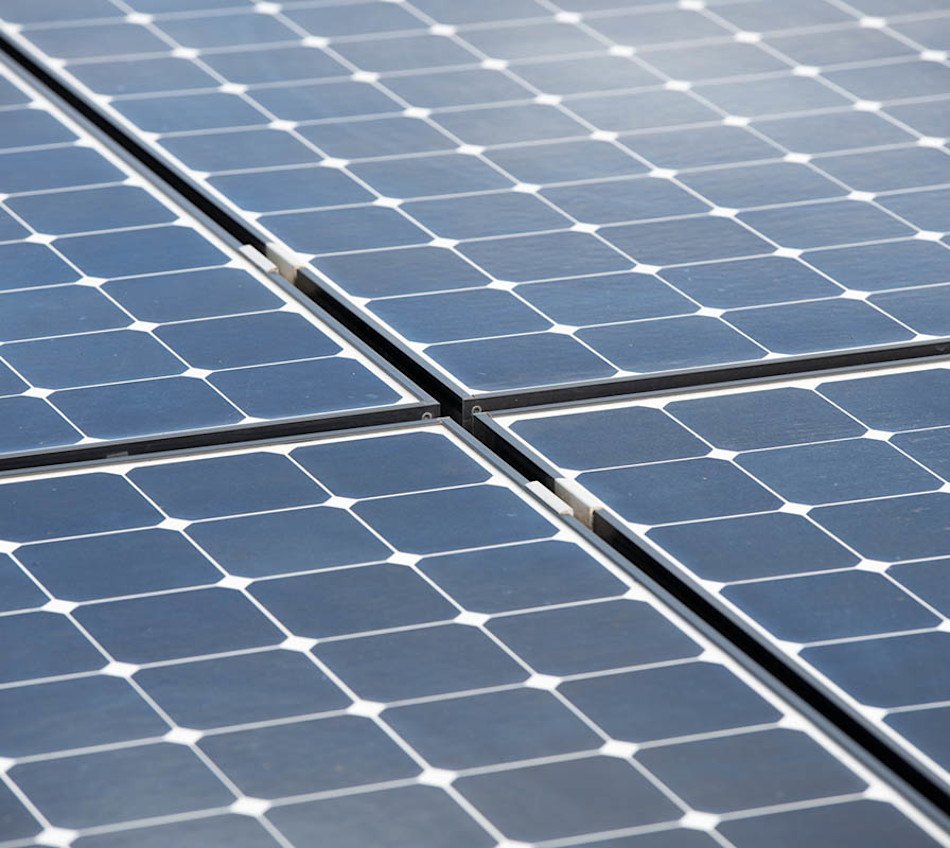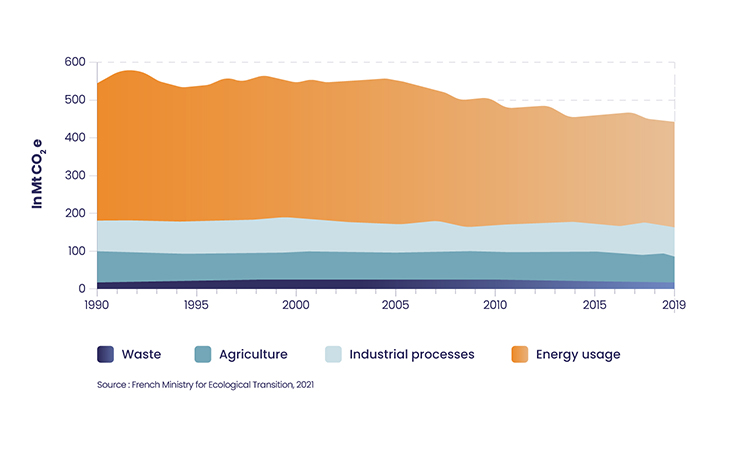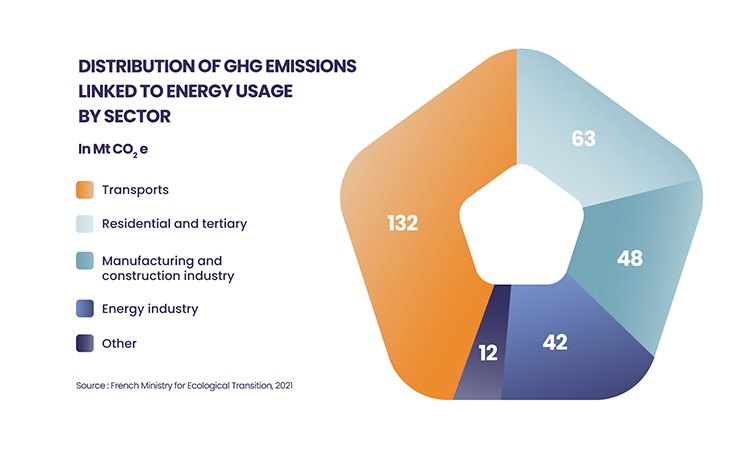Reducing your greenhouse gas emissions
Industry, transport companies, local authorities, farmers etc. Nowadays, everyone has to take steps to limit their activity’s ecological footprint. At the forefront of those actions: reducing greenhouse gas emissions, particularly by switching to a less carbon-based form of energy. Explore our solutions for reducing the emissions from your activities right now.

Reducing emissions: a whole-planet challenge
Do you want to reduce your greenhouse gas emissions to help protect the environment, to achieve national and international ecological targets, and to satisfy your customers’ expectations for engagement on your part? Whatever your business, there are effective levers for decarbonising your usage, limiting your carbon emissions, and helping reduce emissions into the atmosphere of methane, another powerful greenhouse gas:
Switching to less carbon-based, renewable energy sources
With local ecosystems providing biogas, hydrogen, renewable electricity, recovery and recycling of methane or carbon, transport, capture, utilisation and storage.Decarbonising means of transport
By adopting new low-carbon mobility solutions, suitable for light vehicles, heavy goods vehicles, utility vehicles or lifting and handling plant.Moving towards energy frugality
By relying on high-performance digital tools to optimise energy efficiency and reduce overall energy consumption.
Find out how our expertise in energy efficiency and renewable energy can help you significantly reduce your greenhouse gas emissions.
The solutions we offer
GHG emissions in France: who emits what?
As the main emitters of greenhouse gases in France, industry and mobility are therefore also major levers for decarbonisation in France. To help meet national and European targets for limiting emissions, it is therefore crucial that action is taken in these business sectors.
Another significant source of emissions: organic waste from farming, agribusiness, local authorities or rubbish tips. They all generate methane, a powerful greenhouse gas. Energy recovery from that waste to produce biomethane is therefore another powerful lever for reducing greenhouse gas emissions in France.


Bilan Carbone®: offering clarity on emissions
Created in 2002 by ADEME (the French Environment and Energy Management Agency), and managed since 2011 by the Bilan Carbone Association, the Bilan Carbone® (carbon audit) provides a complete breakdown of all direct and indirect (suppliers, customers etc.) greenhouse gas emissions from companies, public establishments and local authorities.
This is a valuable tool for economic actors as they seek to reach their carbon neutral targets. It also makes it possible to identify sources of CO₂ emissions that could be captured, transported, recovered and stored. Hence, expansion of the Bilan Carbone® is helping meet the national strategic challenges of limiting energy consumption, fighting the exhaustion of fossil resources, improving use of decarbonised energy sources and increasing energy independence.
Who for?
It’s recommended that all businesses, be they large or small, compile a GHG audit. This process will help you target your emission reduction actions more effectively, but also assess your dependence on fossil fuels, the price of which will rise in the future and are, by their very nature, destined to disappear.
In addition, the Bilan Carbone® (carbon audit) is mandatory for certain actors, who have to produce one every four years:
- Legal persons under private law and employing more than 500 people (250 in the overseas departments and regions).
- The State, regions, departments, urban communities, agglomerations and communities of municipalities with more than 50,000 inhabitants, along with other legal persons or persons under public law employing more than 250 persons.
Decarbonising energy: an environmental and economic challenge
Decarbonising energy is part of a process of responsible management and exploitation of the planet’s resources. As alternative to the fossil fuels imported from other countries, renewable and locally produced energy sources such as hydrogen or biomethane are also an opportunity to increase our energy independence. Encouraging the use of multi-energies, specifically by recovering CO₂ to produce synthetic methane, methanol or sustainable fuels, complements the energies of the future to achieve these climate objectives. Over and above the environmental benefits of decarbonisation, the energies of the future are helping to develop a circular economy approach to benefit the territories, by creating jobs and new businesses.
Future partner?
Have you developed an innovative solution for reducing greenhouse gas emissions? Are you now looking for a partner to get it publicised and deployed? Do you feel you can match up to the values held by Teréga Solutions?
If so, please do not hesitate to contact us!

Discover Terega Solutions offers
- HydrogenSee the solution
- MethanizationSee the solution
- Low carbon mobilitySee the solution







